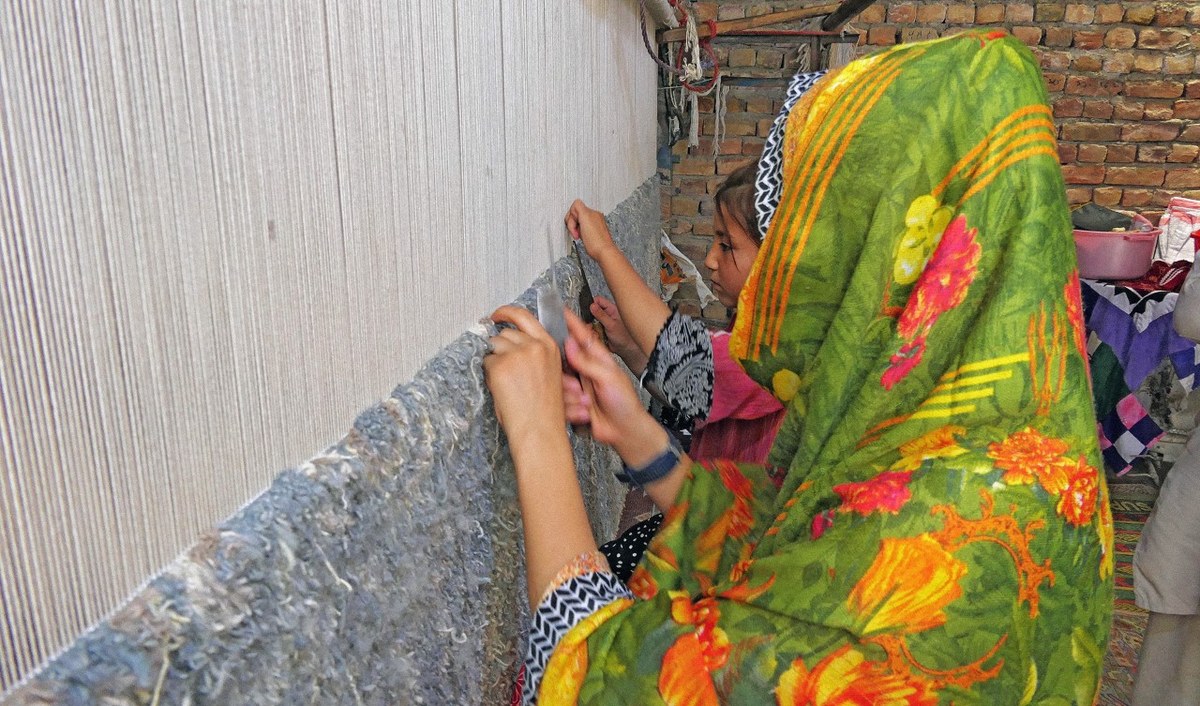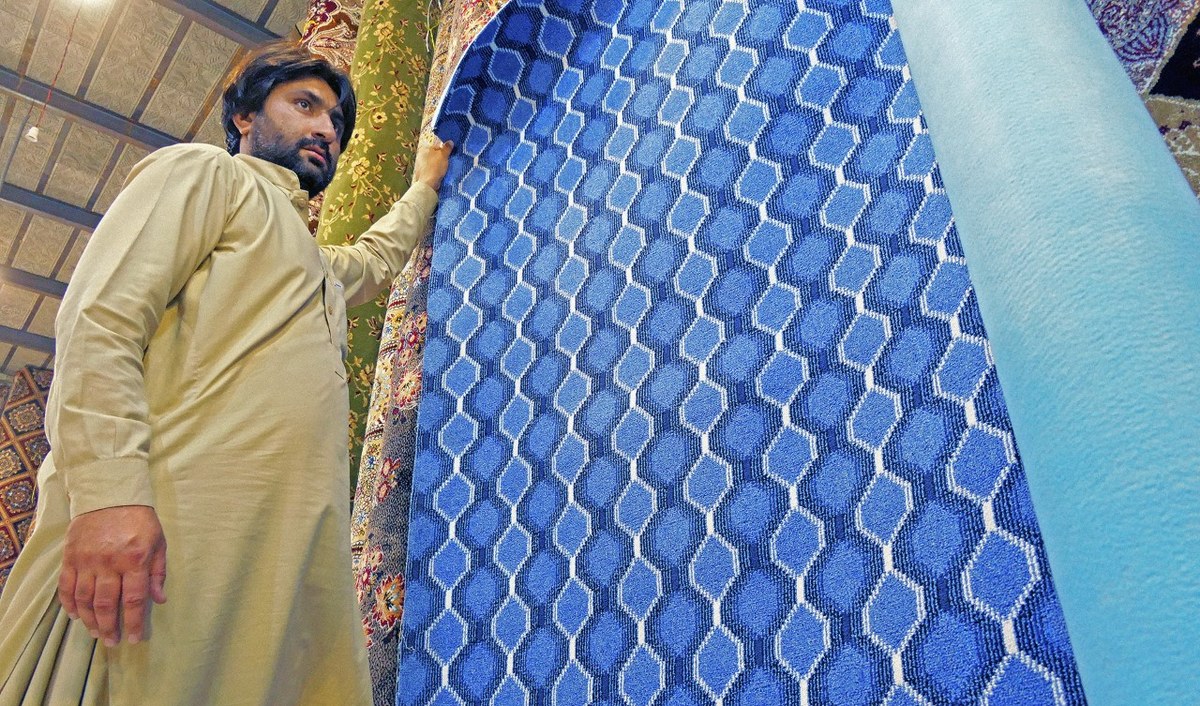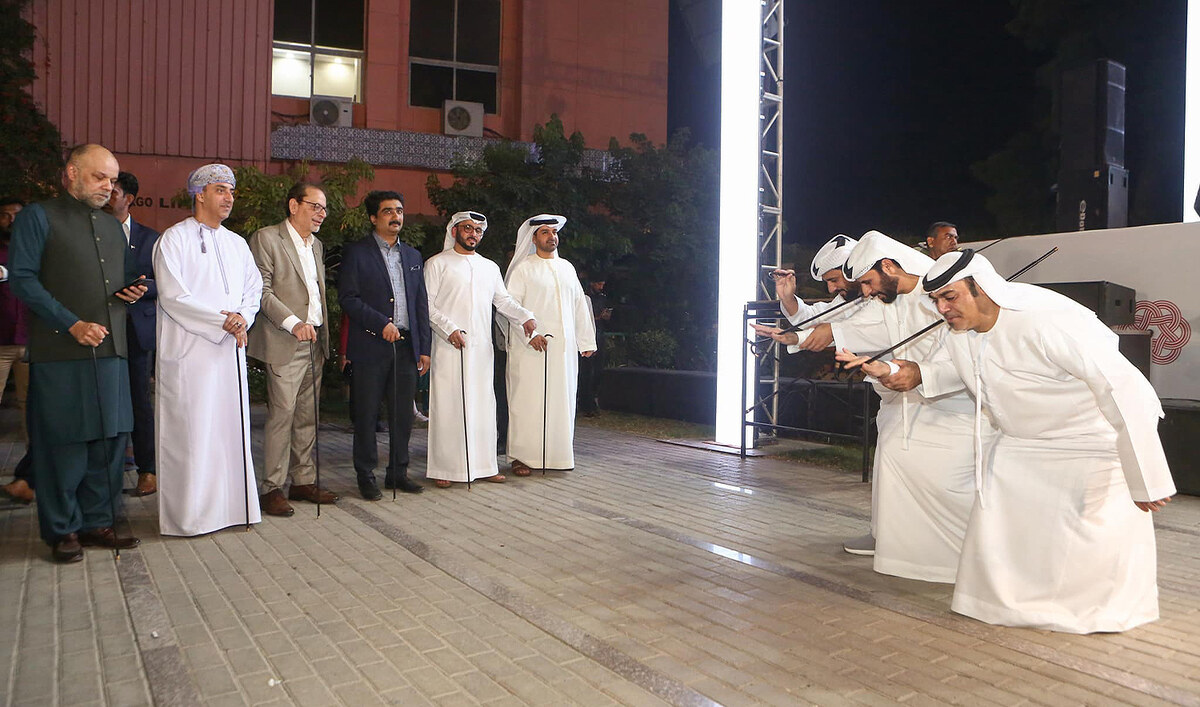QUETTA: Famous hand-knotted qaleen carpets are disappearing from southwestern Pakistan as weavers say their craft has been pushed to the brink of extinction by cheap, machine-made rugs from Iran.
The neighborhoods of Hazara Town, Ghosabad and Marriabad in Quetta, the capital of Balochistan province, used to be Pakistan's main qaleen center, with regular exports to the United States and Europe giving employment to thousands of weavers. Now, only a few such workshops are left.
Muhammad Mehdi, who ten years ago inherited his father's qaleen business at Shoukat Stop of Krani Road, remembers how weavers would throng the one hundred khadis (looms) at his family's workshop.
"Hundreds of women, children and young workers used to come for this antique art of weaving, but today we have not a single khadi in our workshop," Mehdi said.
"Now, we only receive three or four orders a year from major carpet companies in Punjab and Sindh. We have hired workers who have their own khadis."
He pays his weavers $42 per square meter. The carpets then go to Lahore and are finished there to be ready for export, with the price per square meter jumping to about $300 and making it unfordable for most Pakistanis.

Girls knot a 30-meter rug at their home in Hazara Town, Quetta, Balochistan on June 2, 2021. (AN photo by Saadullah Akhter)
Iranian carpets, meanwhile, cost less than what Mehdi pays his contractors.
Some allege that what makes the Iranian carpets so cheap is not only machine-weaving but also that they enter Pakistan through the porous border without duty. Customs officials say, however, that the scale is not large.
"Indeed, the Iranian rugs are being smuggled to Pakistan but not in large numbers because the smugglers travel through the desert and rugged mountainous routes, which could damage the quality of rugs," a Quetta Customs official told Arab News on condition of anonymity as he is not authorized to talk to the media.
He added that while the Baloch carpets are still exported to the US and Europe, they are no longer sent from Balochistan. Quetta weavers only do the low-paid hard work, which is later sent for finishing to centers such as Lahore. Meanwhile, the local market is flooded by the cheap Iranian rugs.

Abdul Samad shows a machine-made Iranian carpet on Double Road in Quetta, Balochistan, June 2, 2021. (AN photo by Saadullah Akhter)
"Balochistan didn’t export a single hand-knotted carpet abroad for the last three years," the official said.
Abdul Samad, a Quetta carpet seller who has been in the business for the past 22 years, says the downfall of his craft reflects increasing poverty across the whole country, with people who used to buy hand-made carpets no longer able to afford them.
"The cost of an Iranian rug of 10 to 13 meters is Rs60,000 ($390) while a hand-knotted rug of the same size would cost up to Rs400,000," he said.
"Pakistani people can't buy them, except for the elites."


















